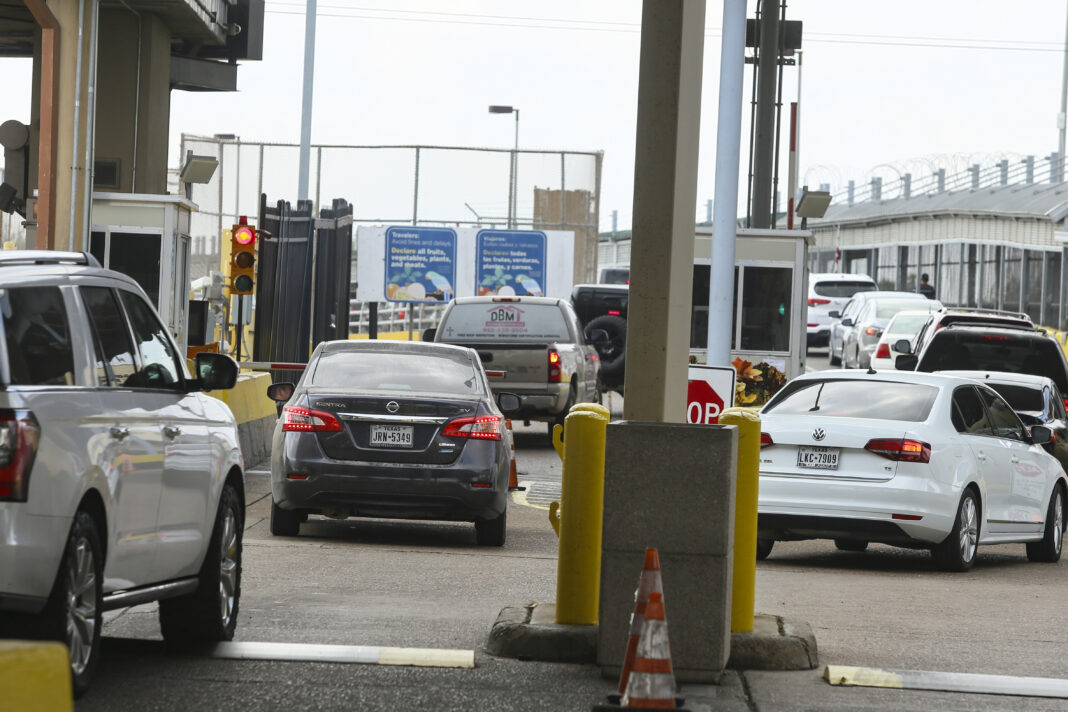All non-U.S. individuals planning to enter the United States through land borders with Mexico and Canada will have to be fully vaccinated against COVID-19 and show proof of vaccination beginning on Saturday.
The U.S. Department of Homeland Security announced these new guidelines on Friday as COVID-19 cases continue to rise nationwide.
The restrictions will apply to non-U.S. individuals who are traveling for both essential and non-essential reasons.
They will not apply to U.S. citizens, lawful permanent residents or U.S. nationals.
“Starting on January 22, 2022, the Department of Homeland Security will require that non-U.S. individuals entering the United States via land ports of entry or ferry terminals along our Northern and Southern borders be fully vaccinated against COVID-19 and be prepared to show related proof of vaccination,” said Secretary Alejandro N. Mayorkas in a media release. “These updated travel requirements reflect the Biden-Harris Administration’s commitment to protecting public health while safely facilitating the cross-border trade and travel that is critical to our economy.”
The new requirements do not apply to U.S. citizens, lawful permanent residents or U.S. nationals.
The announcement comes some four months after the DHS announced in October 2021 the reopening of the ports of entry to non-essential travel after it barred Mexican nationals and Canadians from entering the U.S. over 18 months due to COVID-19 restrictions.
Hidalgo County Judge Richard Cortez on Friday said he believes the new regulations could prevent some Mexican nationals from crossing the border and in turn could affect area businesses.
In May of 2021, members of the Texas Border Coalition asked DHS to lift restrictions because it was hurting commerce along the U.S.-Mexico border.
“These restrictions have heavily paralyzed and devastated the economics of our border businesses and communities. In 2019, the Texas-Mexico border had an impact of more than $19 billion in economic activity, supported over 650,000 jobs, and increased infrastructure development along our international boundaries,” the border leaders said.
“Anytime you put any kind of impediment of their ability to officially cross over here is going to deter some number of them from coming simply because it is just in the natural course of business. Some are not going to have the adequate information to show they are vaccinated, some are not going to be vaccinated…there will be some effect on our commerce because of that,” Cortez said.
The U.S. is almost approaching or has already approached 700 days of dealing with the coronavirus with several versions of the virus occurring.
COVID-19 made its first appearance in 2020. Other variants followed that included the delta, and the omicron. To prevent the spread of coronavirus, the DHS implemented its first restrictions to non-essential travelers in April 2020 putting a halt to all non-essential travel. The restrictions continued until Nov. 1, 2021 when DHS decided to lift them.
Cameron County Judge Eddie Trevino Jr. said since it was noted in October 2021 that non-U.S. individuals crossing the border land ports would have to provide the proper COVID-19 documentation, he hoped Saturday’s requirements would not affect the border economy as bad as it did in 2020 and 2021.
“We hope that it won’t have any negative impact because when they reopened the ports of entry back in November it was with the expectation that it was going to get to this point in a short period of time. We are hoping that this is giving those individuals that maybe were not quite sure if they qualified. Hopefully they had enough time to get fully vaccinated with the proper vaccine,” Trevino said.
He said Cameron County took a big hit in 2020 when DHS implemented the restrictions to non-essential travelers. Local businesses were also impacted by the change.
“We lost on average between $600,000 to $800,000 a month for those 20 months. That closure impacted us a lot and while we see the numbers obviously improving, it’s still not back to where we would like it to be pre-pandemic, so we still have a ways to go and hopefully this additional change in regards to the essential traveler won’t have a negative impact,” Trevino said, adding “in addition to that individual it could obviously disrupt the supply and logistical lines, which we have already been experiencing over the last several months.”
According to DHS, non-U.S. individuals traveling to the U.S. via the land ports of entry or ferry terminals for essential or non-essential reasons must:
>> Verbally attest to their COVID-19 vaccination status
>> Provide proof of a CDC-approved COVID-19 vaccination, as outlined on the CDC website
>> Present a valid Western Hemisphere Travel Initiative Document
>> Be prepared to present any other relevant documents requested by CBP officers after inspection
It’s unknown if the new requirements will translate into longer wait times at the port of entries as Mexican national cross from Mexico to the U.S. U.S. Customs and Border Protection did not respond to several emails seeking comment on Friday.




